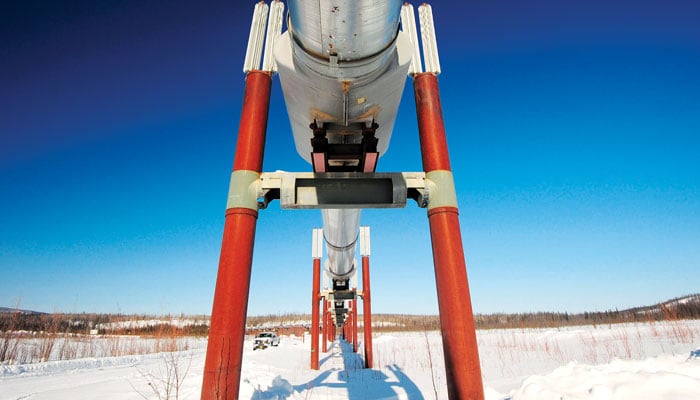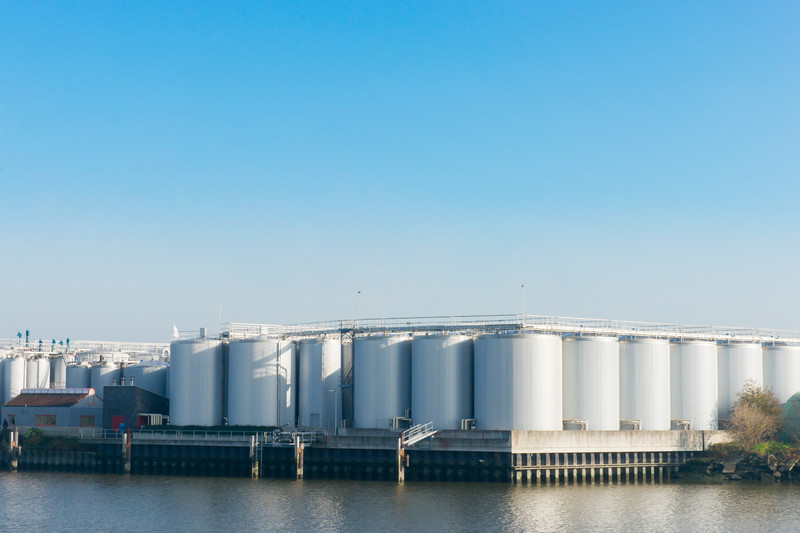Today, the bill to approve the construction of the the Keystone XL pipeline hits the Senate, after the House approved Cassidy's legislation by 252-161 on Friday.
ESG & Industry Updates

Tuesday the House passed bipartisan legislation to speed up the approval process for cross-border energy projects (ie Keystone XL), despite a promised veto from President Obama. The bill is known as the “North American Energy Infrastructure Act”, featuring 12 Republican and 8 Democratic co-sponsors. If it passed the Senate, it would establish by law that projects be granted or denied approval within 120 days of the Environmental Impact Study, and more significantly, it would remove the need for Presidential Approval.
Technically the bill doesn’t apply to Keystone XL, because the applications and environmental impact studies are already completed for that proposed project. However, that’s obviously the most glaring example of the need to speed up the process, and probably the impetus for the bill’s submission in the first place. In theory, TransCanada could resubmit their application and be subject to the speedier process. (A motion to prevent TransCanada from resubmitting should the bill pass was handily shut down by a wide margin.)
Topics: Energy Independence, Keystone XL, Energy Infrastructure, Congress, TransCanada, Environmental Impact Study
Energy Security, Not Independence, Should Be The Goal
Posted by Ed Burke on Mar 27, 2014 12:36:40 PM
Topics: Energy Independence, US Crude Exports, US Energy Boom, Keystone XL, russia, ukraine,
Main energy topics in the headlines for 2014 include the Crude Export Ban, the Keystone Pipeline, the Climate Change Action Task Force, RFS Volumes, and an expected final ruling on the Tier III mandate from the EPA.
Topics: Energy Independence, Biodiesel Tax Credit, EPA Mandate, US Crude Exports, Cellulosic Ethanol, Keystone XL, RFS, obama
Would CRUDE Exporting Increase Your Pain at the Pump? Not Necessarily
Posted by Ed Burke on Jan 7, 2014 1:43:00 PM
As we’ve discussed, proponents of overturning the ban on US Crude Exports cite the economic gain to be had, including jobs to be created.
Topics: Energy Independence, Fracking, CRUDE
Congress is reportedly considering overturning laws banning US Oil Producers from exporting Crude. The law originally went into place in the 1970’s largely in reaction to embargoes that raised “scarcity” concerns – essentially, blocking export is supposed to safeguard from scarcity in domestic supply. This is timely on their part – as we have seen for the first time since 1995, US Crude production has exceeded imports. What do they have to do with each other? In the absence of an export potential, or at least one not slowed and more expensive due to refining, US crude production will hit a plateau or worse. But why?
Refined oil (gasoline and diesel) can be exported under current US law, and exports have grown substantially in recent years. The issue is, however, that the shale oil boom is producing huge volumes of light crude. In order to export, these huge amounts of crude need to be refined, which is difficult, costly and will ultimately slow production over time. The Council on Foreign Relations sums the issue up nicely in the following quote:
Topics: Energy Independence, US Crude Exports, US Energy Boom, CRUDE
Is Propane Autogas the Alternative Fuel of the Future?
Posted by Ed Burke on Jun 11, 2013 2:23:00 PM
Folks looking at different options for alternatively fueled vehicles are apparently increasingly considering moving to propane Autogas. Propane is currently the third most popular engine fuel (after diesel and gasoline) and given the changes in our domestic energy production, namely increases in Natural Gas and Crude Oil production/refining, propane is looking like an increasingly good choice.
Topics: Environmentally Friendly Products, natural gas, Energy Independence, Propane Autogas
While still in the winter of 2011 we return to a season of discontent. Oil prices are soaring, food prices are soaring, as well as other commodities. The recent Biodiesel Conference was very much counter seasonal with many warm summer breezes:
Topics: massachusetts biodiesel mandate, Waste Feedstock Biodiesel, Energy Independence, Biodiesel Tax Credit, Biodiesel
Subscribe to Email Updates
Recent Posts
Posts by Topic
- Carbon Emissions (42)
- Climate Change (33)
- renewable energy (32)
- Oil & Energy Magazine (27)
- EPA (24)
- Massachusetts (22)
- Biden Administration (18)
- decarbonization (15)
- Biodiesel (12)
- natural gas (12)
- EPA Mandate (11)
- RFS (11)
- Solar (11)
- Biofuels (10)
- Keystone XL (10)
- methane (10)
- Clean Energy (9)
- offshore wind (9)
- Energy Independence (8)
- Energy Infrastructure (8)
- Safety (8)
- Biodiesel Tax Credit (7)
- Emissions (7)
- Ethanol (7)
- Trump Administration (7)
- ev (7)
- Cellulosic Ethanol (6)
- EV Charger (6)
- Inflation Reduction Act (6)
- RINs (6)
- environmental justice (6)
- Fracking (5)
- Technology (5)
- US Crude Exports (5)
- Utility Rates (5)
- electric vehicles (5)
- maine (5)
- tesla (5)
- ACT (4)
- Mass DOER (4)
- TransCanada (4)
- battery (4)
- fuel management (4)
- massachusetts biodiesel mandate (4)
- obama (4)
- paris accord (4)
- remote tank monitoring (4)
- CARB (3)
- CRUDE (3)
- Carbon Capture (3)
- Clean Fuel Production Credit (3)
- E85 (3)
- Emergency Fuel (3)
- Massachusetts Clean Cities (3)
- Waste Feedstock Biodiesel (3)
- china (3)
- clean power plan (3)
- electricity rates (3)
- net-zero (3)
- renewable diesel (3)
- solid state battery (3)
- AI (2)
- AVs (2)
- Bioheat (2)
- Commodities (2)
- Congress (2)
- Customer Service (2)
- DOT (2)
- EIA (2)
- Emergency Generator Program (2)
- HFCs (2)
- Hurricane Sandy (2)
- IMO 2020 (2)
- MIT (2)
- Marinas (2)
- New York (2)
- Refinery Closures (2)
- Safe Driving Policy (2)
- TCI (2)
- US Energy Boom (2)
- ZEV (2)
- autonomous vehicles (2)
- clean air act (2)
- clean heat standard (2)
- coal (2)
- driver shortage (2)
- emergency response (2)
- environment (2)
- ferc (2)
- geothermal (2)
- hydro-electric (2)
- hydrogen (2)
- national grid (2)
- net metering (2)
- power plant emissions (2)
- power plants (2)
- railcar regulations (2)
- tariff (2)
- vineyard wind (2)
- API (1)
- Air conditioning (1)
- Baiji Refinery (1)
- Blend Wall (1)
- Brent Crude (1)
- Brent vs WTI (1)
- CFCs (1)
- Cell Phone Policy (1)
- Clean Water Act (1)
- DEF (1)
- Election Results (1)
- Electrical Grid (1)
- Energy Efficiency (1)
- Environmental Impact Study (1)
- Environmentally Friendly Products (1)
- Ethanol Tax Credit (1)
- FEMA (1)
- Fiscal Cliff (1)
- Gas Tax (1)
- Gasoline Supply Crunch (1)
- HDVC (1)
- Hazmat (1)
- Heat Tax (1)
- Highway Trust Fund (1)
- Holyoke (1)
- Hybrid (1)
- ISIS (1)
- Iraq (1)
- Kigali Amendment (1)
- MOC (1)
- Market analysis (1)
- Mayflower (1)
- Montreal Protocol (1)
- NORA (1)
- Natural Gas Pipeline Explosion (1)
- New Jersey (1)
- OBB (1)
- Oil Barrel Tax (1)
- PFC (1)
- Pegasus Pipeline (1)
- Propane Autogas (1)
- Stimulus (1)
- Syria (1)
- Tank Truck Safety Training (1)
- Tax Increases (1)
- Tier 3 Gasoline Standard (1)
- Times Square (1)
- VEEP (1)
- Workplace Risk (1)
- agriculture (1)
- algonquin pipeline (1)
- alternative energy (1)
- altwheels (1)
- astm (1)
- bionic leaf (1)
- bitcoin (1)
- boston (1)
- covid-19 (1)
- energy storage (1)
- eversource (1)
- export ban (1)
- fixed pricing (1)
- fuel (1)
- fuel efficiency (1)
- fuel marketers news (1)
- gas leaks (1)
- heating oil (1)
- hurricane harvey (1)
- inflation (1)
- irving oil (1)
- marketing (1)
- nuclear (1)
- online fuel buying (1)
- ozone (1)
- photovoltaic (1)
- pilot program (1)
- pipeline (1)
- propane (1)
- renewable natural gas (1)
- rggi (1)
- russia (1)
- sanctions (1)
- senate (1)
- shale (1)
- social media (1)
- social media for business (1)
- space (1)
- tablets (1)
- tennessee pipeline (1)
- ukraine, (1)
- value added services (1)



